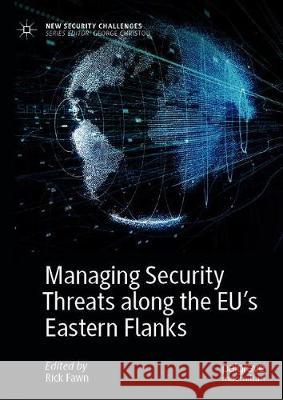Managing Security Threats Along the Eu's Eastern Flanks » książka
topmenu
Managing Security Threats Along the Eu's Eastern Flanks
ISBN-13: 9783030269364 / Angielski / Twarda / 2019 / 275 str.
Managing Security Threats Along the Eu's Eastern Flanks
ISBN-13: 9783030269364 / Angielski / Twarda / 2019 / 275 str.
cena 523,30
(netto: 498,38 VAT: 5%)
Najniższa cena z 30 dni: 501,19
(netto: 498,38 VAT: 5%)
Najniższa cena z 30 dni: 501,19
Termin realizacji zamówienia:
ok. 16-18 dni roboczych.
ok. 16-18 dni roboczych.
Darmowa dostawa!
Kategorie BISAC:
Wydawca:
Palgrave MacMillan
Seria wydawnicza:
Język:
Angielski
ISBN-13:
9783030269364
Rok wydania:
2019
Wydanie:
2020
Numer serii:
000345230
Ilość stron:
275
Waga:
0.62 kg
Wymiary:
21.01 x 14.81 x 2.39
Oprawa:
Twarda
Wolumenów:
01
Dodatkowe informacje:
Wydanie ilustrowane











